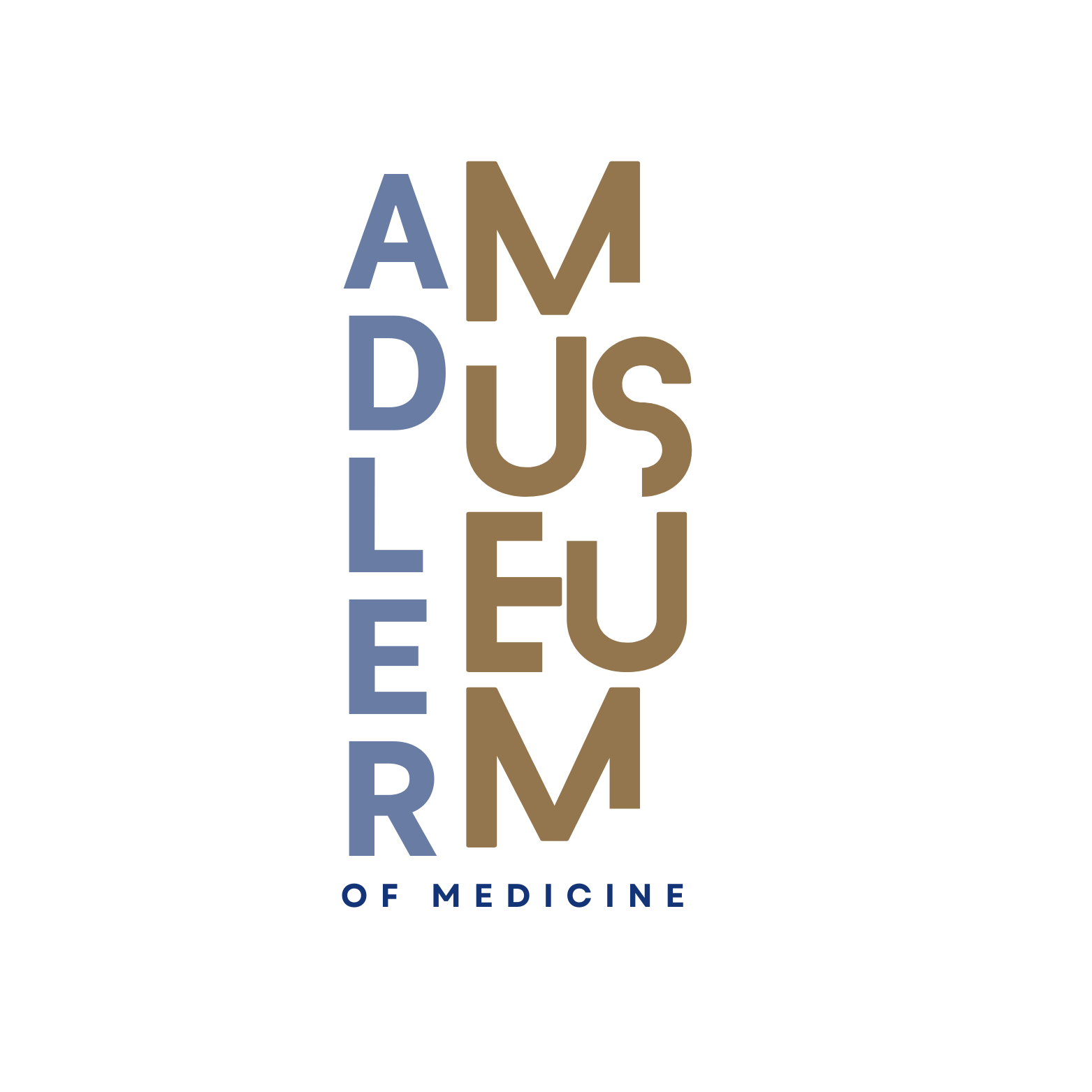The Museum has a limited budget with which to purchase library material. It is therefore largely dependent on donations to extend the collection. Furthermore, resources are limited and all aspects of the policy must be understood in this light.
The Witwatersrand Health Sciences Library is the major medical library of the University. The Adler Museum library will therefore not duplicate material held by WHSL and all donations will be assessed and given to the WHSL if more appropriately housed there. Unless of great importance or great utility value, duplicates are not collected.
The Adler Museum Library collects printed and manuscript material in support of the Museum's collection of artifacts; pertinent to the history of medicine and allied health sciences in South Africa and Gauteng in particular, or of particular value.
Scope:
The Adler Museum of Medicine library will house the following materials:
Primary/archival material
- Archival material with a natural historical integrity, including personal papers, loose papers, documents, printed ephemera, autographed letters, manuscripts and documents and personal papers relating to medical practitioners and allied health professionals in South Africa.
- Documents relating to medical institutions and organisations in South Africa.
- Documents relating to the history of the Faculty of Health Sciences, its Schools and Departments and research entities, provided these may not be more appropriately housed in the Faculty's Registry or the University Archives.
- Any medical work, or work in related fields, including textbooks deemed to fall within the objectives of the Museum, provided these are not collected by WHSL.
Pharmacopoeias
Pictorial material: for use in displays, research, education, publications and for illustrated talks.
Printed primary material which has to do with scientific medicine should be housed at WHSL. This includes monographs, journals and pamphlets, excepting those of particular monetary value.
Pamphlets: excluding reprints and loose journal articles available elsewhere.
Secondary literature
Catalogues: of medical and surgical instruments or similar catalogues relating to the collection of the Museum.
Books and monographs: English language books on the history of medicine, the history of sciences and the history of ideas, with an emphasis on those dealing with South African and African history which advances the relevance and importance of the Museum collection as determined by the Mission Statement.
Any book written by a South African doctor or anyone else trained in a related field of the health sciences, provided that this falls within the ambit of the aims of the Museum. The existence of non-related works should be documented and such works placed in appropriate collections, preferably within the University.
Books inscribed by famous medical personalities, where either the book or the inscription is of historical significance relevant to the objectives of the Museum. (This may also be regarded as the primary material.)
Selected relevant books on museology, as well as selected journals in this field.
Fiction should not be collected unless they provide significant background to the development of medicine in South Africa.
Films, videos and slides: Relevant to the history of health sciences.
Serials
As budget permits, the Museum collects secondary journals in medical history and related fields deemed relevant and not available elsewhere in the University.
Reprints of journal articles will not be kept if these are available elsewhere.
Publications in foreign languages (non-South African official languages) should be selectively kept as these are specifically not collected by WHSL.
An item may be accepted provided that:
The item is consistent with the collection goals of the Museum.
Appropriate precautions can be taken if the item could cause damage to the existing collection (eg pest infestation, nitrate film stock).
Adequate care can be given to the item within the budgetary constraints of the Museum.
Specific conditions imposed by a donor are not in conflict with established practice within the Museum.
The ownership of the copyright is, where applicable, specified and deemed acceptable.
The item has been obtained by legal means.
Access
- All library material is catalogued and available on the University library system.
- The library is open during the Museum's opening hours for reference purposes.
- The subject index of the archival material is accessible on the Museum's website.
- Archival material held by the Museum and used by researchers must be acknowledged on publication.

